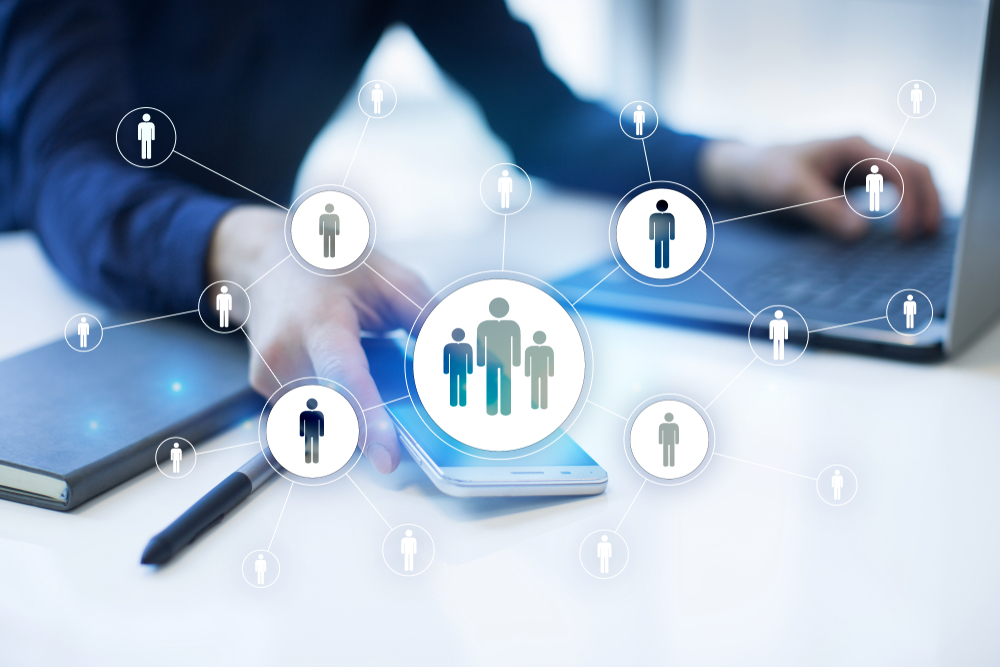The workforce of the future: When AI meets HR
Contributors are not employed, compensated or governed by TD, opinions and statements are from the contributor directly
 Jitender Panihar is talking at the TD HR Executive Summit about the workforce of the future. I spoke to him on this week’s podcast about how AI will affect the role of HR professionals and indeed the global workforce:
Jitender Panihar is talking at the TD HR Executive Summit about the workforce of the future. I spoke to him on this week’s podcast about how AI will affect the role of HR professionals and indeed the global workforce:
Below is an abridged version of that conversation. Panihar speaks:
Background
My career started at consultancy organisations such as Deloitte and PricewaterhouseCoopers in both national and international stints. After that, I decided to be part of a different ecosystem, leading HR for a health and nutrition start-up, healthkart.com.
I always had entrepreneurial ambitions so I explored options on my own. I worked a lot with founders and organisations to build HR systems in-house while evangelising and mentoring startups on their product and tech platforms.
Moving away from the blue-chip lifestyle
This depends on you as an individual, your personality and your thought process. When I was at PWC, I was based in Kuala Lumpur and Singapore, and I started conversations with startups.
Even if everything is going great you have aspirations, and if you are someone who wants to bring best in class change and who wants to take transformation to another level, and wants to be able to impact the lives of the people in the organisation, that’s the time you decide and you go back to fundamentals.
It’s not a difficult decision if you’re clear in terms of what you’re passionate about. It’s risky and the environment around you will be deciphering these decisions a little differently, but you have to look at how to make those decisions yourself.
Unlocking potential

I’ve seen a disconnect between today and the future of what the workforce will look like—there’s a changing technological landscape, new businesses coming into the picture and operating models throughout the globe. What does it mean to the workforce when they look ahead and when they envisage organisations of the future?
There are several changes that we are going through today that define how we will function tomorrow. With the advent of technology, our work has been impacted. We have virtual environments and virtual teams.
What this means to me, as an employee, is there is an impact on my role which will need me to come up with different skills.
How has the work environment changed with the advent of technology, AI machine learning and virtual reality? What will happen when humans have to work in the same environment as machines? There’s a lot of controversy around it. Will we lose jobs or will we become redundant?
The building blocks of the future
Computers came, and then www came, and now we are talking about AI. The fundamental trend which is a very clear metric of success is not your technical upgrading because technology will keep on changing.
“Adaptability and flexibility… is the first building block of this particular change”
The defining success factor is how you adapt and learn those new technologies. Adaptability and flexibility is something which is the first building block of this particular change. Our inherent ability to be able to go to a new environment, to become a part of that environment – the faster you do that and the smoother you do that, defines your success.
More than technologies and technical skills, these environmental skills will be critical not only for us as HR professionals but employees in general.
There is an airline organisation in India that does a lot of work on artificial intelligence. They are trying to use AI to collect a lot of analytics and data to understand their employees and demographics and to understand the new generation which has become part of the workforce.
This is so that they can understand the needs and aspirations of the existing workforce, and help and prioritise their needs. They are working on employee experiences, understanding the learning quotients, and creating learning frameworks today because they want to understand the data so that they can ready the workforce for future gain.
They are leveraging learning applications and tech-enabled mobile applications which are being used by every single employee right now from their customer support officer to the crew, to somebody who sits at the ticketing counter.
Managing change
This is a classical change in management scenario, and it’s not just about this particular technology. It depends on how you as an organisation is trying to manage the change. There are going to be employees which will not have the understanding and there are going to be employees who are resistant and who may be insecure.
It depends on how the management communicates this change and there has to be a very clear vision for the change. If I intend to use this technology, then I need to have a clear case for change defined and communicated to my leadership, cascaded down to the employees through town halls and conversations.
Tell them why you are doing what you are doing right now. Involve people whenever they are needed and then make an implementation plan for changing the existing scenario—if processes need to be changed or if jobs and roles need to be changed. It depends whenever there is a change, there is going to be friction but that’s where the job of the HR professional becomes important—especially in the age of AI.
Upscaling your skillset

HR is a very cyclical industry. Every two or three years, we talk about new technology and trends and that’s what I’ve seen in my experience over the last 11 years. We used to talk about HR analytics in the same breath as we would talk about artificial intelligence.
There is still a difference in that context.
Now, we are talking about a more holistic change. Only an HR function was getting changed because of new technology; now the entire world is changing. Somewhere by choice or by chance you have to prepare for this.
AI is nothing new and it’s been around since the 1950s, although a lot of people feel like it’s a recent phenomenon. But now there are lots of practical applications and significant work, particularly in the last two years, that has gone into this.
The HR technology space is the most active space as far as artificial intelligence and machine learning is concerned because that’s where you see a lot of use cases. That’s why there are a lot of interesting startups coming up every fortnight.
“The capability of HR organisations needs to go up”
How do you solve an employee experience problem when you go out in the market to attract talent? How do solve feedback issues when you are trying to capture data fundamentally and historically the organisation has not been able to manage data?
I am disappointed by the ability of HR to comprehend and translate AI. The capability of HR organisations needs to go up and it’s very different to talk about AI and to be able to implement it those technologies. It’s not just about understanding artificial intelligence but the tertiary skills you need to demonstrate, such as change management, next year and two years from now.
Being equipped for success
HR has been traditionally functioning as a silo. The fun starts when you as an HR guy think about how AI can influence customer experiences or make improvements for the sales team. It’s a learning and development philosophy which will need to be relooked at. Someone has to be able to translate the entire value chain from one function to an organisational function is able to create use cases leveraging people and AI.
The people that I have worked with and the ecosystem that I have been a part of that needs to be addressed before we start to walk that path. Having an acknowledgement is very very different from practising the real change. I’m constantly saying that the faster we realise the need for change, will define we will be walking towards a success, or towards a doom!
“Unlearning is one of the first fundamentals of leadership”
It is our inherent ability to unlearn a lot of things we have learned in the last 10 to 40 years. Unlearning is one of the first fundamentals of leadership and for HR professionals. We need to realise and then we need to equip ourselves with new skills.
The change has to start at the top. It’s easy to focus on execution and training people on new skills and implement some of the transformations but I think the crux of it comes from the top. That’s where make or break happens.


Comments are closed.